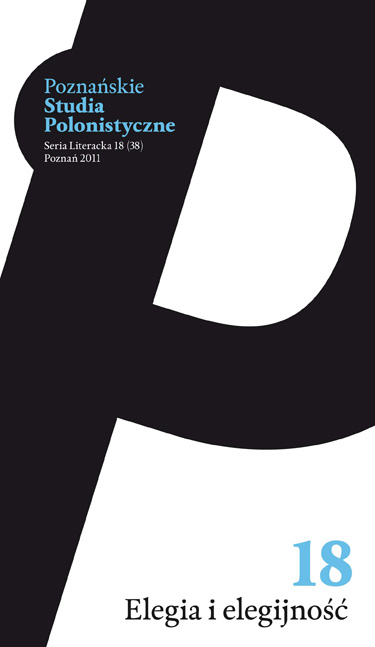Elegijne dykcje Aleksandra Wata
Aleksander Wat’s elegiac diction
Author(s): Krystyna PietrychSubject(s): Language and Literature Studies, Studies of Literature, Polish Literature, Philology
Published by: Wydawnictwo Poznańskie Studia Polonistyczne
Keywords: elegiac mood; twentieth-century Polish poetry; literature and Communism; the topos of the old poet; Aleksander Wat
Summary/Abstract: The present article tries to show and characterize Aleksander Wat’s poetic diction included in the pool of the kinds of the literary elegiac mood and mournful strains used by the writer. Wat does not employ just one language that would offer the power of expressing oneself and convey one’s own existential experience — he speaks with varied elegiac voices: be it full of sadness, melancholy and despair, be it filled with irony and sarcasm. In fact, the elegiac tone in its traditional variation is to be found only in one war poem, whereas all his post-war poetic volumes bring a rich polyphony of varied elegiac voices. Wat’s late poetic writings is underlined by a necessity to renew what has already happened, to repeat the existing pattern of expressing oneself, and thus forms a particular elegiac intertextuality. In this way, such rhetorical dimension of the word is revealed that challenges the feasibility of getting the content through in a straightforward manner. The awareness of repetition, however, does not restrict the author to silence — just the opposite, it makes him aware of a necessity to draw from codes lodged in tradition and thus to create a collage-like diction of his own.
Journal: Poznańskie Studia Polonistyczne. Seria Literacka
- Issue Year: 2011
- Issue No: 18
- Page Range: 147-162
- Page Count: 16
- Language: Polish

